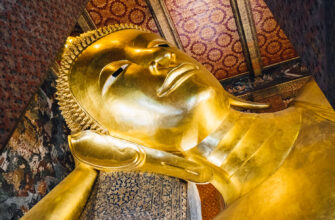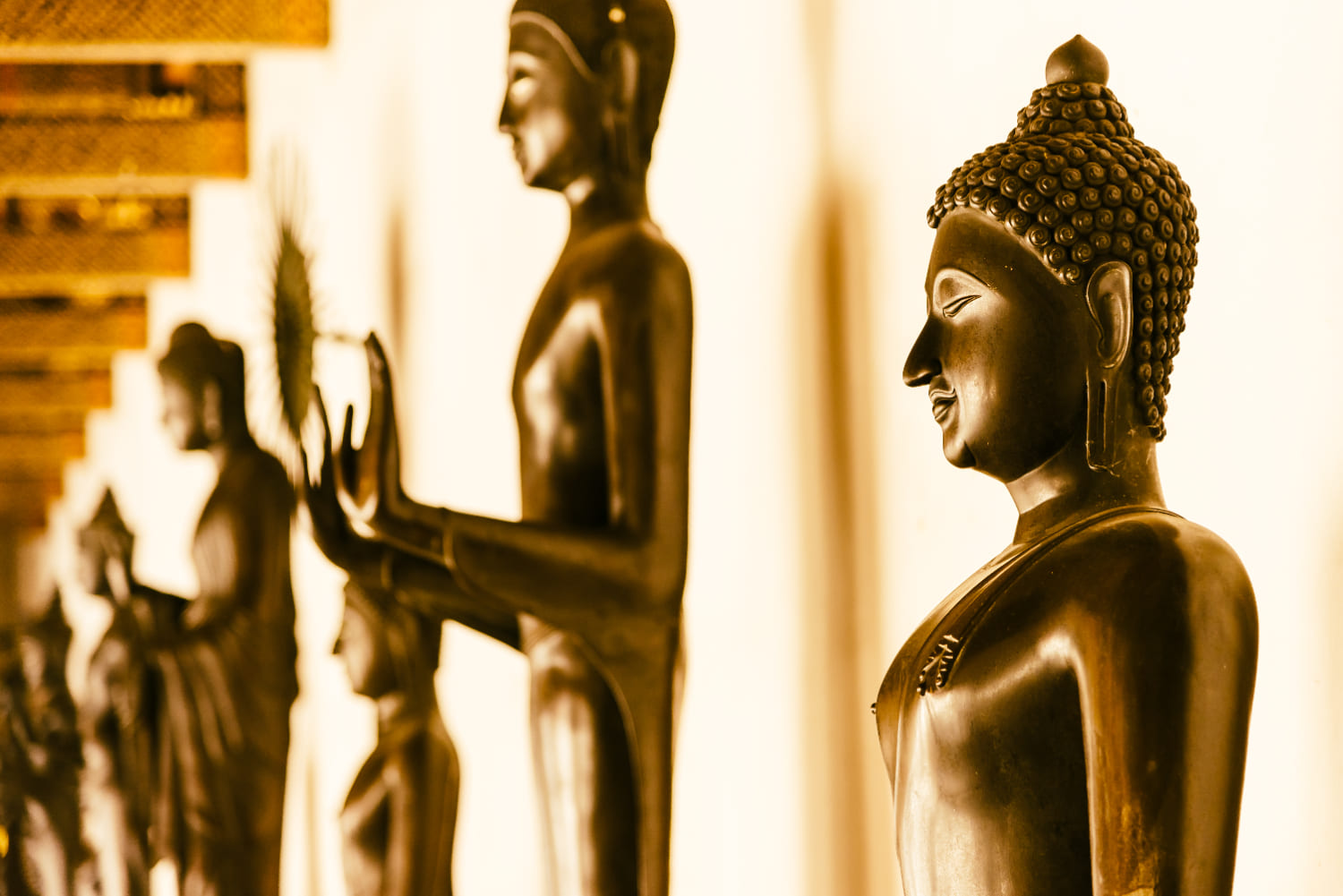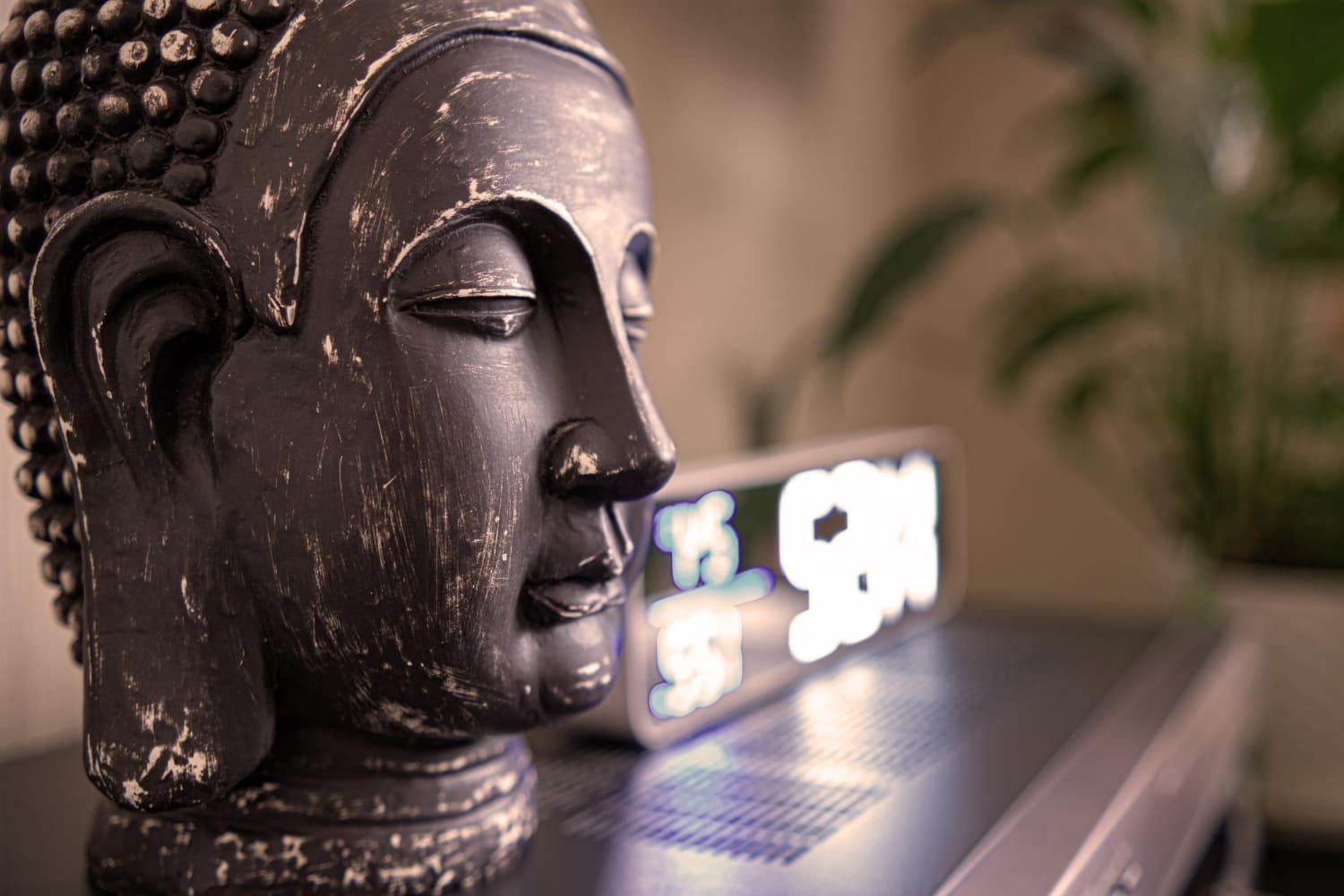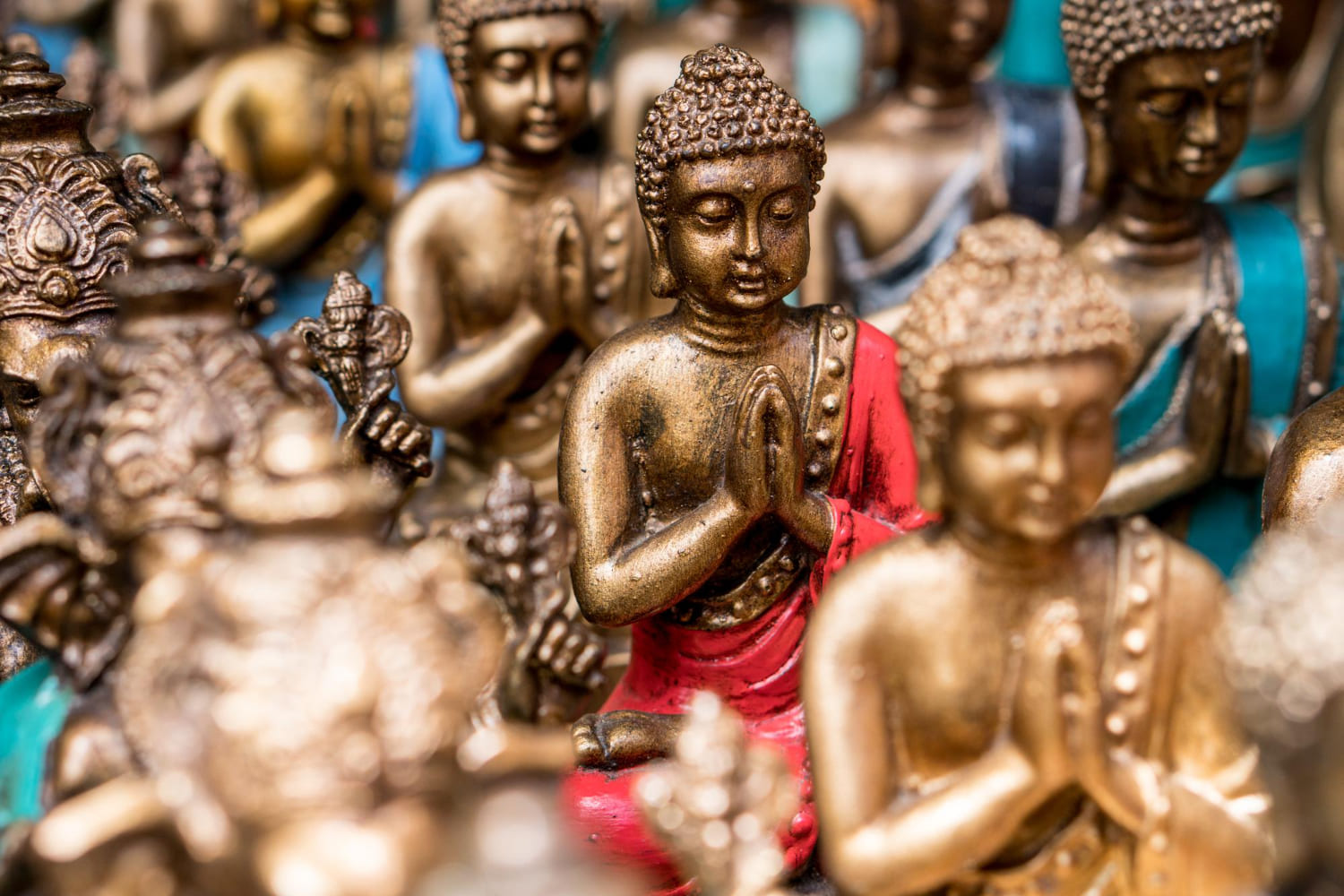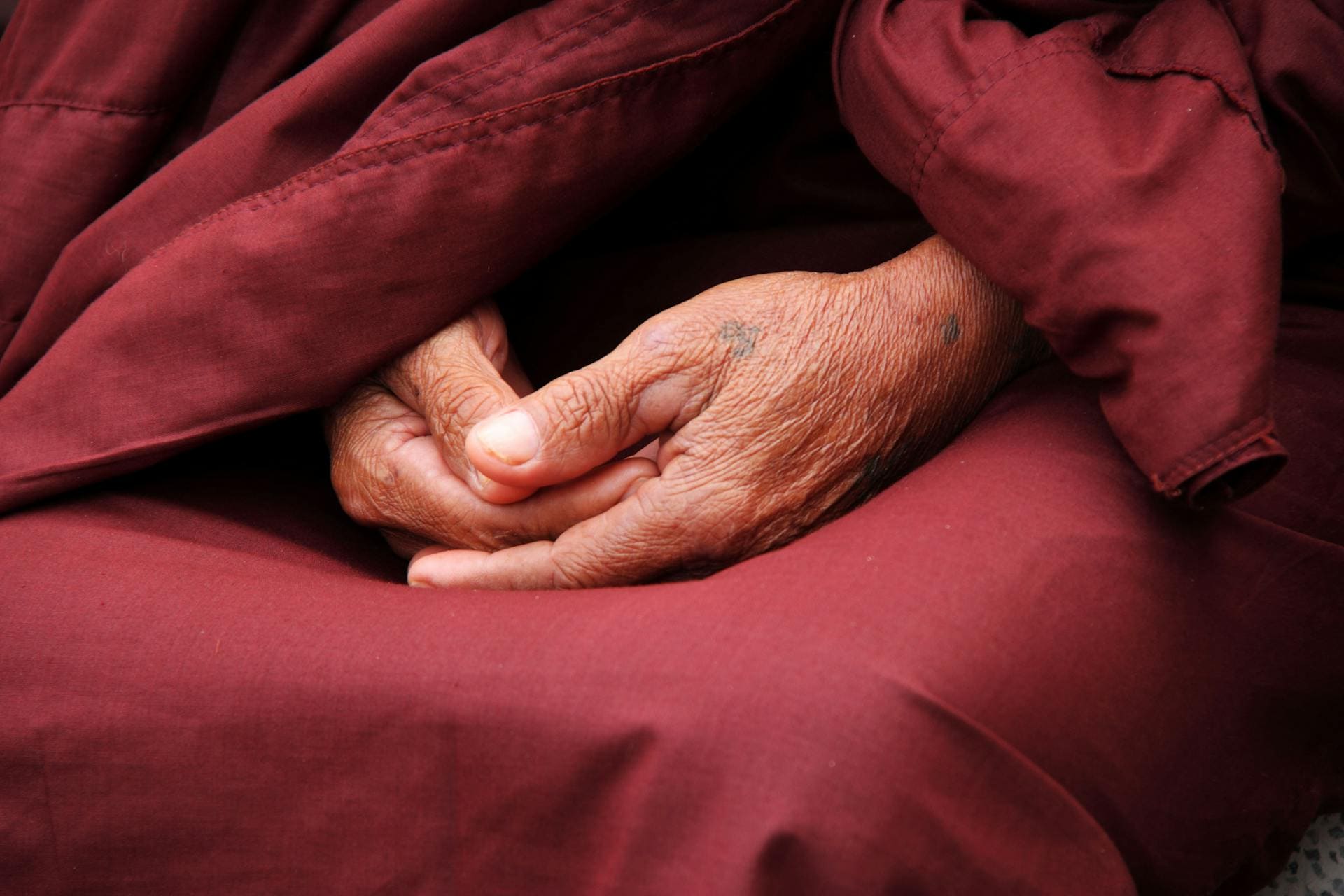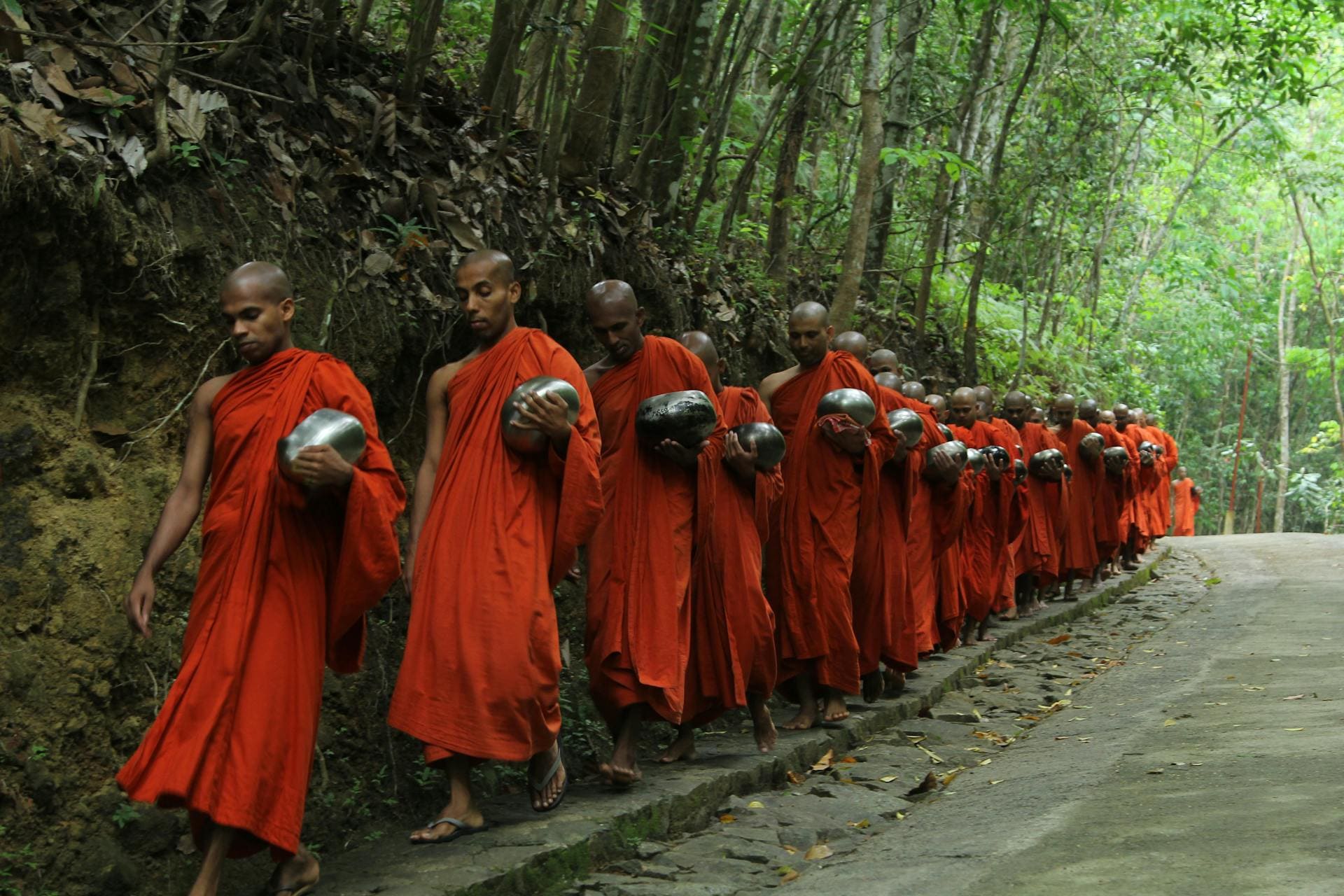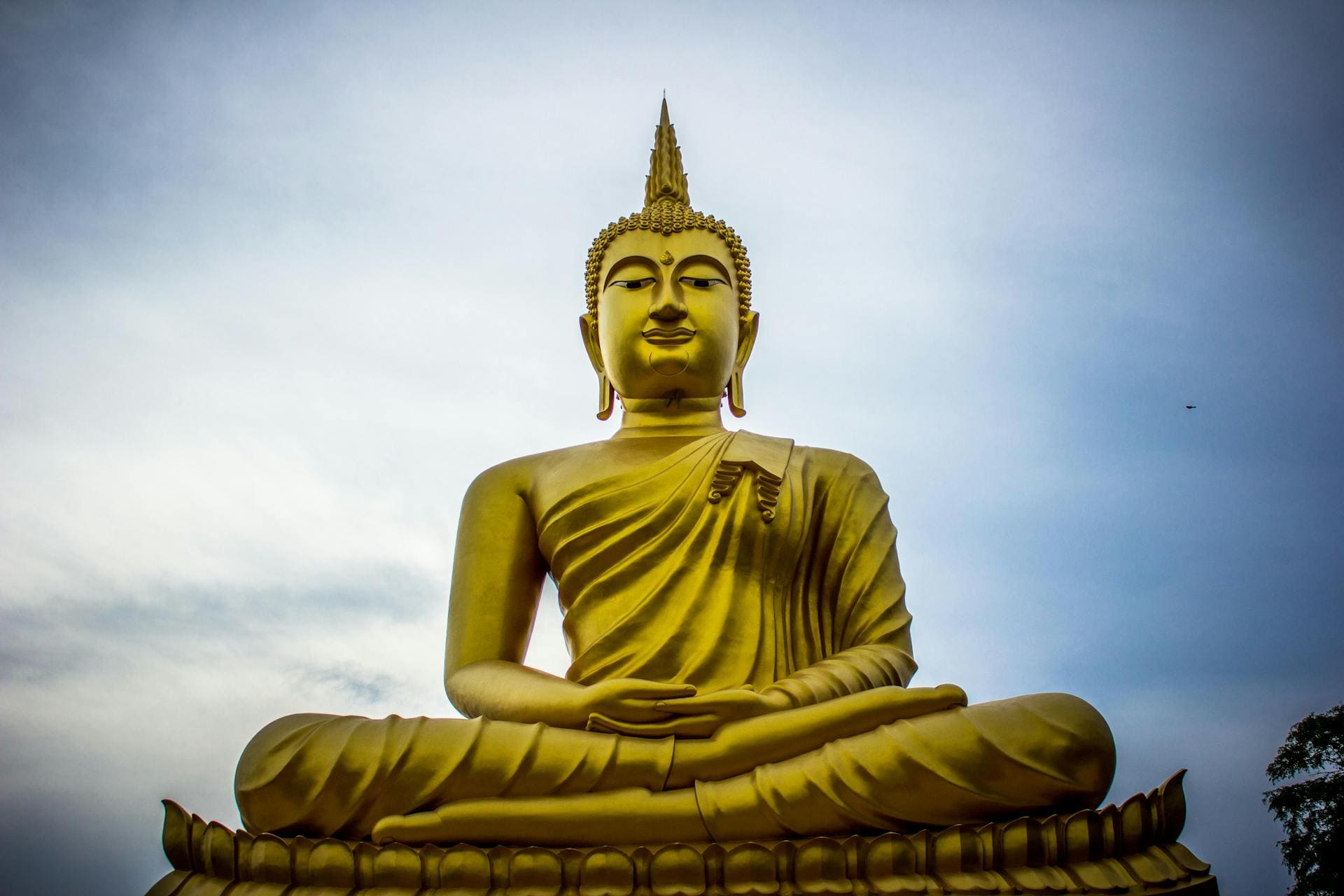Buddhism is a religion that originated in India and is based on the teachings of Siddhartha Gautama, also known as the Buddha.
One of the unique aspects of Buddhism is the concept of deities, which are known as bodhisattvas. These are beings who have attained enlightenment but have chosen to remain in the world to help others achieve the same.
There are many different bodhisattvas in Buddhism, each with their own unique characteristics and qualities.
In East Asian Buddhist traditions, some of the major bodhisattvas include Guanyin, Maitreya, Samantabhadra, Manjushri, Ksitigarbha, Mahasthamaprapta, Vajrapani, and Akasagarbha.
Others bodhisattvas include Candraprabha, Suryaprabha, Bhaiṣajyasamudgata, Bhaiṣajyarāja, Akṣayamati, Sarvanivāraṇaviṣkambhin, and Vajrasattva.
While some may view these bodhisattvas as gods, it is important to note that they are not worshipped in the same way as deities in other religions. Instead, they are seen as guides and sources of inspiration for those on the path to enlightenment.
In this article, we will explore the full list of Buddhist deities and provide a guide to their characteristics and significance in the religion.
The Concept of Gods in Buddhism
Buddhism is a religion and philosophy that originated in India and spread throughout Asia. Unlike other major world religions, Buddhism does not have just one god, but rather includes a wide array of divine beings that are venerated in various ritual and popular contexts.
These beings are known as devas, asuras, yakshas, and nats.
According to Buddhist teachings, gods are not considered to be eternal and all-powerful beings. They are believed to be subject to the same laws of impermanence and suffering as all other beings.
In fact, the Buddha himself discouraged his followers from becoming too attached to the gods or seeking their help in achieving enlightenment.
The concept of God as the one and only supreme being, and not just one god among many, was just coming into acceptance among Jewish scholars about the time the Buddha was born. This God concept may not have ever reached him.
Buddha’s view on the concept of God was neither to accept, nor reject the concept of a creator or creation. He merely puts God’s concept aside without ever expressing so clearly about the existence of the Gods.
The role of gods and deities in Buddhism varies depending on the tradition and context. In some traditions, they are seen as protectors and helpers of humans, while in others they are seen as obstacles to be overcome in the pursuit of enlightenment.
Regardless of their role, they are all considered to be subject to the same laws of karma and rebirth as all other beings.
In summary, the concept of gods in Buddhism is complex and multifaceted. While they are venerated and worshipped in various contexts, they are not considered to be eternal or all-powerful beings.
Instead, they are subject to the same laws of impermanence and suffering as all other beings, and their role in the pursuit of enlightenment varies depending on the tradition and context.
Types of Buddhist Gods
Buddhist gods are classified into different types based on their characteristics, roles and functions. Here are some of the most important types of Buddhist gods:
Buddhas
Buddhas are beings who have attained enlightenment and are revered as teachers and guides for those on the path to enlightenment. There are many Buddhas in the Buddhist pantheon, each with their own unique qualities and teachings. Some of the most well-known Buddhas include Gautama Buddha, Amitabha Buddha, and Medicine Buddha.
Bodhisattvas
Bodhisattvas are beings who have attained enlightenment but have chosen to remain in the world to help others achieve enlightenment. They are revered for their compassion and wisdom, and are often depicted as teachers and guides. Some of the most well-known bodhisattvas include Avalokitesvara, Manjushri, and Ksitigarbha.
Devas
Devas are celestial beings who reside in heavenly realms and possess supernatural powers. They are often depicted as protectors and helpers of humans, and are revered for their ability to influence the world in positive ways. Some of the most well-known devas in Buddhist mythology include Indra, Brahma, and Vishnu.
Yidams
Yidams are meditation deities that are used as objects of focus in tantric meditation practices. They are believed to embody specific qualities and energies that can be invoked by practitioners to aid in their spiritual development. Some of the most well-known yidams include Vajrayogini, Chakrasamvara, and Yamantaka.
Dharmapalas
Dharmapalas are protectors of the Buddhist faith who are often depicted as fierce and wrathful beings. They are believed to protect practitioners from harm and to help them overcome obstacles on the path to enlightenment. Some of the most well-known dharmapalas include Mahakala, Palden Lhamo, and Yamantaka.
The Major Buddhist Gods and Goddesses
Buddhism has a rich pantheon of deities and bodhisattvas, each with their own unique attributes and roles. While the number of gods and goddesses in Buddhism is vast, there are a few that stand out as being particularly important.
Here are some of the major Buddhist gods and goddesses:
- Avalokitesvara: The god of compassion and mercy, Avalokitesvara is one of the most popular and widely worshipped deities in Buddhism. He is often depicted as having multiple arms and heads, each symbolizing a different aspect of his compassionate nature.
- Maitreya: The future Buddha, Maitreya is a bodhisattva who is destined to become the next Buddha in the distant future. He is often depicted as a jovial, rotund figure and is associated with the quality of loving-kindness.
- Manjushri: The god of wisdom, Manjushri is often depicted holding a sword to cut through ignorance and a book to symbolize his vast knowledge. He is said to possess the wisdom of all the Buddhas.
- Ksitigarbha: The god of the underworld, Ksitigarbha is often depicted wearing monk’s robes and carrying a staff. He is believed to protect and guide souls through the afterlife.
- Vajrapani: The god of power and protector of the Buddha, Vajrapani is often depicted holding a thunderbolt and standing in a fierce, warrior-like pose. He is said to embody the strength and determination needed to overcome obstacles on the path to enlightenment.
These are just a few of the major Buddhist gods and goddesses. Each has their own unique qualities and attributes, and many are worshipped in different regions and traditions of Buddhism.
However, they all serve as reminders of the different qualities that practitioners can cultivate on their path to enlightenment.
Lesser-Known Buddhist Gods and Goddesses
While many of the most well-known Buddhist gods and goddesses are revered across multiple traditions, there are also a number of lesser-known deities that hold significance within specific sects of Buddhism.
Here are a few examples:
| Name | Description |
|---|---|
| Bhaisajyaguru | Also known as the Medicine Buddha, Bhaisajyaguru is a deity associated with healing and medicine. He is often depicted holding a bowl of medicine and accompanied by two attendants. |
| Jambhala | Jambhala is a god of wealth and prosperity. He is often depicted holding a mongoose, which spits out precious jewels. |
| Marici | Marici is a goddess associated with light and the sun. She is often depicted riding on a chariot pulled by seven pigs, and is sometimes referred to as the “Queen of Heaven.” |
In addition to these deities, there are also a number of bodhisattvas and protectors that hold significance within specific traditions.
For example, the Japanese Buddhist tradition has a number of deities associated with Shintoism, including the goddess Amaterasu and the god Hachiman.
While these lesser-known deities may not be as widely recognized as some of the more popular Buddhist gods and goddesses, they still play an important role in the spiritual practices of many Buddhists around the world.
How to Worship Buddhist Gods
Buddhist worship is not about honoring gods or deities in the traditional sense. Instead, it is a way to show commitment to the Buddhist path and to seek guidance and support from the Buddhas and bodhisattvas.
Here are some ways to worship Buddhist gods:
- Meditation: Meditation is a key part of Buddhist practice and is often used as a way to connect with the divine. By meditating on a particular Buddha or bodhisattva, you can cultivate a deeper connection and understanding of their teachings.
- Offerings: Offerings are a way to show respect and gratitude to the Buddhas and bodhisattvas. Common offerings include flowers, incense, candles, and food. It is important to remember that the offering is not a bribe or a request for favors, but rather a symbolic gesture of appreciation.
- Chanting: Chanting is another way to connect with the divine and can be done individually or as part of a group. By reciting mantras or sutras, you can invoke the blessings of the Buddhas and bodhisattvas and purify your mind and heart.
- Pilgrimage: Visiting sacred sites and temples is a way to deepen your understanding and connection to the divine. By making a pilgrimage to a particular site associated with a Buddha or bodhisattva, you can cultivate a deeper appreciation and understanding of their teachings.
It is important to remember that these practices are not meant to be superstitious or magical, but rather a way to cultivate inner peace, wisdom, and compassion.
By approaching Buddhist worship with sincerity and an open heart, you can deepen your connection to the divine and to the teachings of the Buddha.
Conclusion
Throughout this guide, we have explored the vast and diverse world of Buddhist deities. From the five primary Buddhas recognized by Mahayana and Vajrayana traditions to the various gods and goddesses in Tibetan Buddhism, there are numerous figures to learn about and appreciate.
It is important to note that the concept of gods in Buddhism is different from that in other religions. Buddhist deities are not seen as all-powerful creators or rulers of the universe but rather as enlightened beings who can guide and assist individuals on their spiritual journeys.
Whether you are interested in learning more about the spiritual goals of Buddhism or simply want to appreciate the rich cultural heritage of this religion, exploring the world of Buddhist deities can be a rewarding experience.
We hope this guide has provided you with a helpful overview and inspired you to continue your exploration of this fascinating topic.
FAQ
Yes, Buddhism recognizes the existence of gods and deities, but their role and significance differ from the concept of God in other religions.
There are many gods and deities in Buddhism, each with their own specific functions and powers.
Some of the most well-known gods in Buddhism include Brahma, Indra, and the Four Heavenly Kings.
Buddhists may offer respect and make offerings to gods, but they do not worship them in the way that many other religions do. Buddhism emphasizes self-reliance and personal development rather than reliance on a higher power.
In Buddhism, achieving enlightenment is seen as a personal responsibility and cannot be achieved through divine intervention.
No, in Buddhism, gods are also subject to the cycle of birth, death, and rebirth, and their existence is impermanent like all other phenomena.
Yes, according to Buddhist belief, one can be reborn as a god if they accumulate enough good karma in their past lives.
While gods are not viewed as obstacles to enlightenment, their realm of existence is still considered to be within the cycle of samsara and is therefore subject to suffering. Thus, the ultimate goal of Buddhism is to transcend even the godly realms and achieve liberation from samsara altogether.
